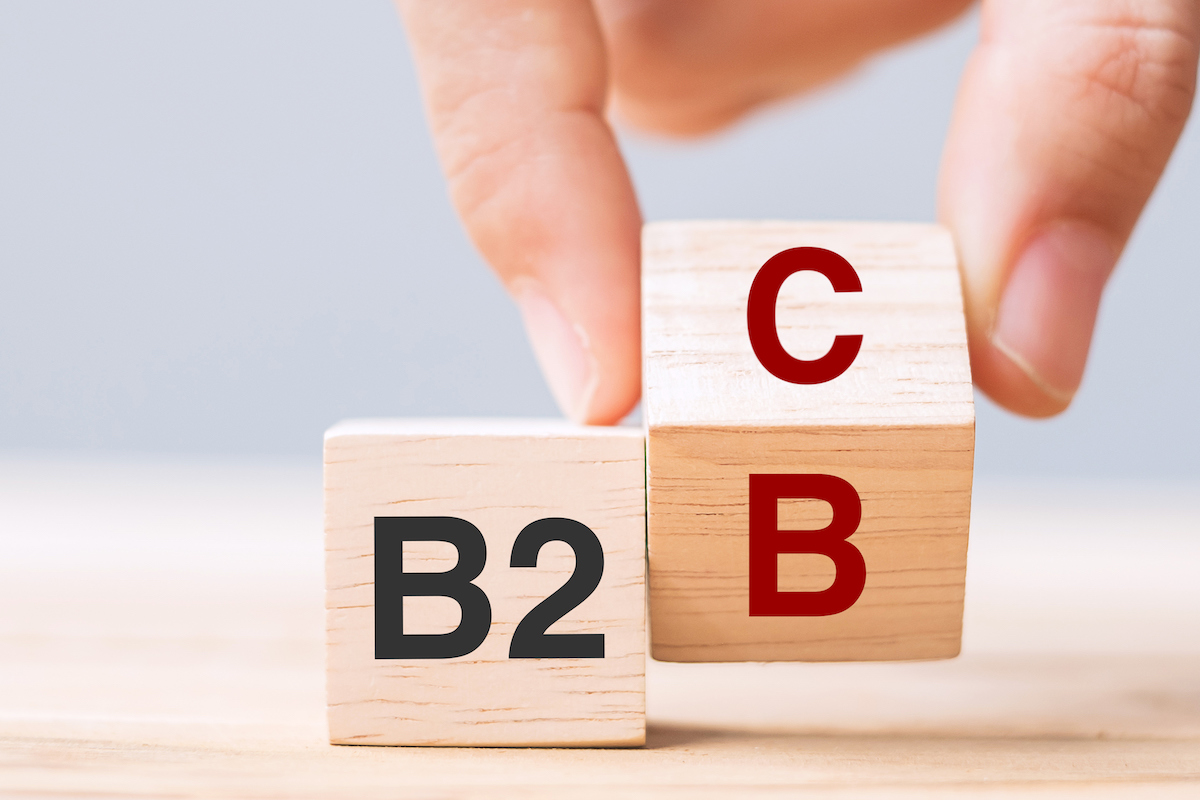At the end of the day, B2B and B2C product managers share the same goal: to deliver products that add value to their customers. But differences between the two business models naturally draw dividing lines in how the two parties are able to meet this goal.
Let’s take a closer look at what sets B2B and B2C product management apart.
Who They’re Catering To
B2B product managers have to cater to clients and users. If you’re manufacturing a power connector that is used in construction equipment, for instance, you need to meet the quality standards and technical needs of the construction equipment manufacturer. But it’s ultimately the person using the equipment that has to feel safe behind the wheel and be able to do their job.
B2C product managers are focused solely on users. While the products themselves are typically simpler in nature — whether it be shoes, cosmetics or jewelry — users still have strict demands. Generally speaking, they’ve come to expect a more frictionless experience while expecting B2C companies to engage in socially responsible practices, such as sustainable packaging design.
How They Leverage These Relationships
B2B product managers typically deal with a smaller client base who they interact with on an ongoing basis. The fact that they know their clients well and continue to collaborate with them sets the foundation for soliciting their feedback. Whether this comes in the form of regular meetings or surveys, the collected information can help B2B companies proactively seek opportunities for improvement and innovation.
B2C product managers usually don’t have as much direct access to individual users. In light of this, they need to lean on consumer behaviors and patterns to obtain feedback that drives their business forward. One example of this: 70% of consumers form their impression of a brand based solely on product packaging. And 63% of consumers think packaging is as important as the brand itself.
The Varying Lengths of a Sales Cycle
While B2C sales can happen rather fast, B2B sales cycles tend to be on the longer side. Results from one B2B survey found that nearly 75% of B2B sales to new customers take at least four months to close and over 46% take seven or more months to close.
Considering the time and resources it takes to acquire a new customer, client retention is an even bigger concern in B2B product management. While many variables factor into a client’s decision to stay with or leave a B2B partnership, product packaging plays a role. If packaging doesn’t meet quality standards or products are damaged in transit, clients can lose trust in the reliability of B2B partners and become frustrated enough to make a move.
The Shared Value in High-Quality Product Packaging
While there are clear differences in B2B vs. B2C product management, one factor that resonates on both sides is good packaging. When packaging is tailored to a product’s specifications and produced with high-quality materials and manufacturing processes, B2B and B2C customers will be more satisfied in the business relationship and be more likely to not only continue with the relationship but recommend companies to others.
Cases By Source is in the business of designing, manufacturing and delivering custom product packaging solutions for both B2B and B2C companies. Have a project we can help with? Request a free consultation with us.








Leave a Comment